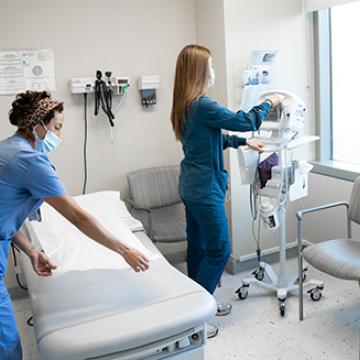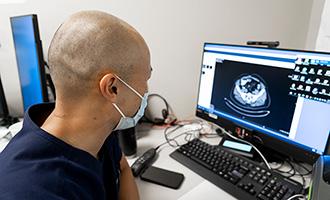Testicular Cancer Tests
Most times, a lump in the testicle is the first symptom of testicular cancer. A lump may be detected during a physical exam or self-exam. Swelling or testicular pain are other common signs. If you know how to check for testicular cancer, it can be found during the early stages, leading to effective treatment of the disease.
Who Should Be Screened?
The American Cancer Society advises men to seek medical attention right away if they find a lump in a testicle. However, testicular cancer may not show signs until it’s reached an advanced stage. Therefore, it is important for men to know what symptoms of testicular cancer look and feel like so they know when to seek treatment. Typically, testicular exam should be part of a man’s general physical or routine checkup.
If you have certain risk factors, such as an undescended testicle, previous germ cell tumors or a family history, you should notify your doctor and consider monthly self-exams.

Diagnostic Tests and Tools for Testicular Cancer
An accurate diagnosis is crucial for implementing the best treatment plan. At City of Hope, our doctors use various methods to test for testicular cancer.
Some of ways we look for and diagnose cancer include the following:
Physical Exam and Health History Review
This examination will check for lumps, pain or swelling.

Ultrasounds
In this procedure, high-energy sound waves make echoes as they bounce off internal tissues or organs. The echoes produce a picture of body tissues called a sonogram, which is then used to create images of the testicles and detect tumors.
Performing an ultrasound on the testicles is often the first step in diagnosing testicular cancer.
Blood Tests
Blood tests to identify tumor markers may be used to diagnose testicular cancer. Tumor markers are proteins or other substances in the blood that may be altered when cancer is present. For testicular cancer, the primary markers are alpha-fetoprotein and human chorionic gonadotropin.
Biopsies
Doctors may perform a biopsy to remove a small tissue sample from a tumor to test it for cancer. Many times, however, a surgeon will remove the entire tumor during a radical inguinal orchiectomy.